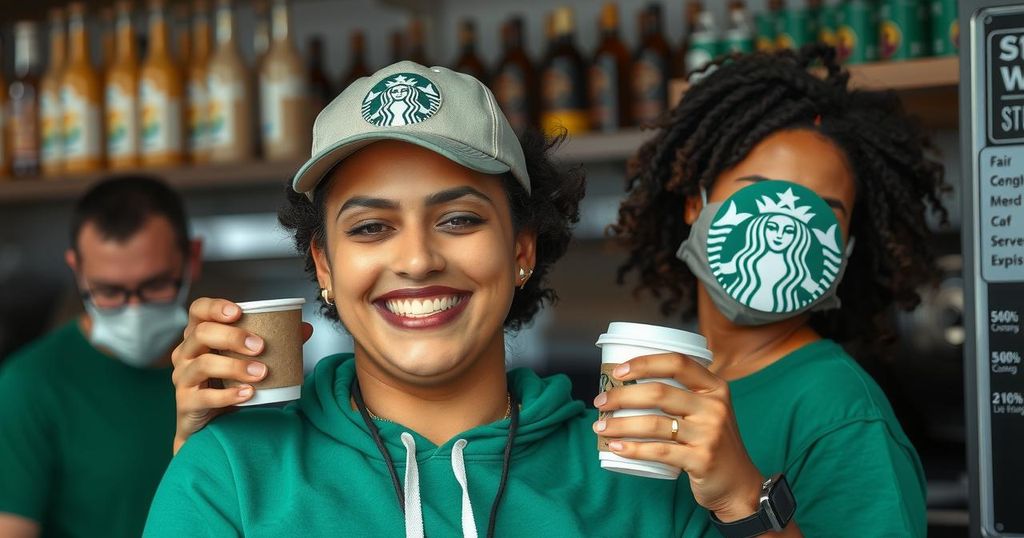Baristas at a Denver Starbucks location filed for a union election amid protests for fair wages and scheduling. This movement reflects broader national demands for labor rights as over 520 stores seek union recognition. Recent strikes have highlighted ongoing allegations of unfair practices by Starbucks, further motivating workers to advocate for improved workplace conditions.
Baristas at a Starbucks location in Denver have made significant strides in organizing for a union election, filing their petition on Friday. In solidarity, baristas from various Denver metro locations protested at another site, voicing their demands for better working conditions. This movement has gained momentum amidst allegations of unfair labor practices across Starbucks stores in the United States, especially during the company’s peak season.
Luis Sanchez Hernandez, an 11-year shift supervisor, expressed his commitment to improving work-life balance through unionization, stating, “I am unionizing for better scheduling practices and to improve work-life balance.” Meanwhile, Brianna da Silva, a barista with one year of experience, reiterated the importance of cooperation among workers to enhance their workplace environment, saying, “I’m organizing because I will always stand with my fellow workers to make our work environment better for all of us.”
Nationwide, over 520 Starbucks locations are seeking union recognition. Recent walkouts in cities including Chicago and Los Angeles have heightened attention on Starbucks’ labor practices, with workers claiming the company reneged on previously negotiated terms related to organizing and bargaining rights. The company’s recent response downplayed the impact of these strikes, declaring, “The few disruptions we have experienced this week have had no significant impact to our store operations.”
Starbucks has been under scrutiny for its labor practices, with accusations of “union-busting” tactics. The National Labor Relations Board previously ruled against Starbucks for illegally terminating an organizing barista, but the affected individual has yet to receive restitution. Shay Mannik, a barista and union organizer, remarked on the necessity of the walkouts, emphasizing, “We would all rather be working and receiving our full pay and our full tips but this is more important; to be able to receive a long-term actual livable wage so we do not have to pinch pennies with our tips for the holidays.”
The call for union representation at Starbucks locations across Colorado, particularly in Denver, emerges in response to ongoing worker demands for fair wages, improved scheduling, and equitable treatment. This movement reflects a broader national trend where Starbucks employees advocate for their rights amid reported unfair labor practices. The urgency of these protests is amplified during peak sales seasons, as workers seek to secure better working conditions and recognize the importance of collective bargaining for their future livelihoods.
In conclusion, Colorado Starbucks baristas are uniting to advocate for fair labor practices through unionization efforts, notably marked by a recent strike in Denver. As they seek to address grievances regarding wages and scheduling, their actions reflect a larger movement across the nation. The resistance faced from Starbucks management only underscores the need for such collective actions and the importance of workers standing in solidarity to achieve long-term equity and fair treatment in the workplace.
Original Source: www.cbsnews.com






